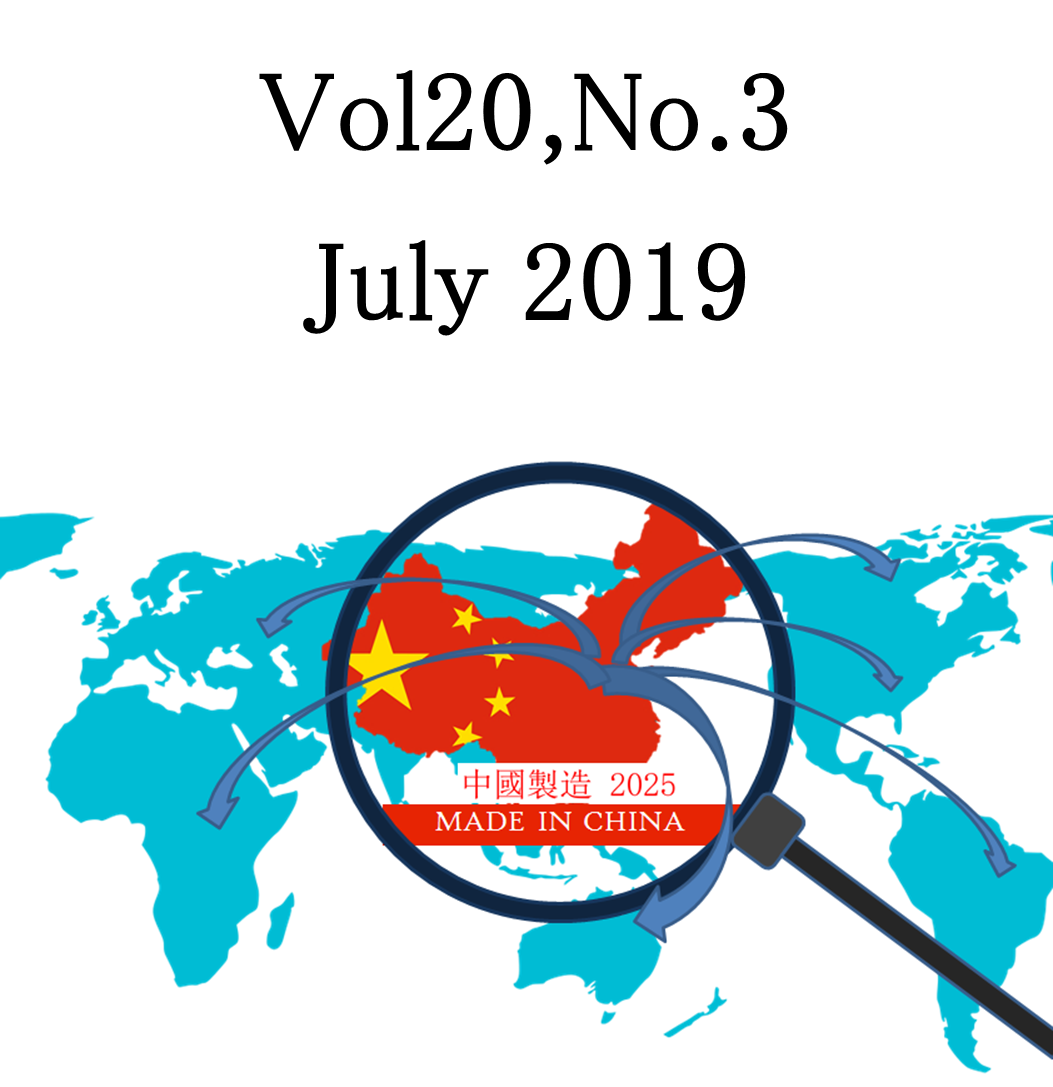The Rise of China’s Red Supply Chain and Its International Impacts
Taiwan Social Sciences Citation Index(TSSCI)
Prospect Quarterly Vol.20 No.3 (July 2019)
The Rise of China’s Red Supply Chain and Its International Impacts
The Rise of China’s Red Supply Chain and Its International Impacts
Honorary Professor, Department of Public Administration,
National Dong Hwa University
Drawing on the experience of the export-oriented economic development of Japan and the “Four Asian Tigers,” Mainland China has adopted, since the beginning of 1980s, a parallel strategy of both import substitution and export promotion, and has given priority to labor-intensive industries following the principle of comparative advantage. Thanks to planned industrial policies and different waves of globalization, Mainland China has become the most important production base in the world. China has since unveiled its ambition to become a “manufacturing superpower.” The Chinese government’s ambition to extend its economic territory provoked different reactions in the international community. The severe economic sanctions that the U.S. has imposed recently against China indicate that the U.S. can no longer tolerate the threats from the rise of China’s economy. Mainland China has become today a net capital outflow nation. As a competitor in the global market, China will have growing impact on the international trade in the future.
Keywords:Reform and Opening-up Policy, Red Supply Chain, Made in China 2025, International Division of Labor, Foreign Direct Investment
Nuclear Hegemony and the Development of Nuclear Weapons: On Security Situation in Northeast Asia
Associate Professor, Department of Diplomacy,
National Chengchi University
The U.S. policy toward North Korea has shifted to “Maximum Pressure and Engagement” since Donald Trump inaugurated as the president, in which military deterrence and economic sanctions,
together with diplomatic engagement, are expected to shape North Korea’s truculent behavior. Trump’s meetings with Kim Jong-un in June 2018 and February 2019 indicated that both sides agreed to arrest the downward spiral in the security dilemma that could lead to the break of war in the Korean Peninsula. And yet, the degree to which Kim is willing to deliver his commitments on denuclearization, if any, is essential to peace and stability in the Northeast Asia region. The U.S. as a nuclear hegemon is obliged to respond to a nuclear North Korea with a capability to threaten its security and hegemonic status.
In addition, how other players perceive the policy shift on the U.S. side also plays a significant role in shaping what they want in the years to come. Nevertheless, while peace remains unclear tomost countries in this region, the occurrence of war seems less likely at present.
Keywords: Trump-Kim Summit, Hegemonic Stability Theory, Nuclear Sates, Security Dilemma, Deterrence
North Korea’s Nuclear Crisis: The Strategy and Analysis of Trump’s Coercive Diplomacy
Assistant Professor Rank Specialist, Graduate Institute of Strategic Studies
& International Affairs, National Defense University
The denuclearization of the Korean Peninsula is an important goal for U.S. Asia-Pacific strategy. For a long time, the United States has used political, diplomatic, military, and economic compulsory means to intimidate North Korea. The U.S.’ coercion is related to whether the United States has the determination to use force against North Korea; consider the credibility of North Korea’s acceptance of the agreement and the consequences of Pyongyang’s retaliation. Taking into account the current trend of relations between the United States and Democratic People’s Republic of Korea (DPRK), the United States may not be able to achieve a unipolar model for denuclearization.
In addition to strengthening its own military deterrence capability, the United States must also work with regional and major powers to solve the issue of denuclearization. If the United States does not change its current strategy, North Korea’s nuclear threat will remain.
Keywords:North Korea Nuclear, Donald Trump, Coercive Diplomacy, Denuclearization, Trump-Kim Summit

